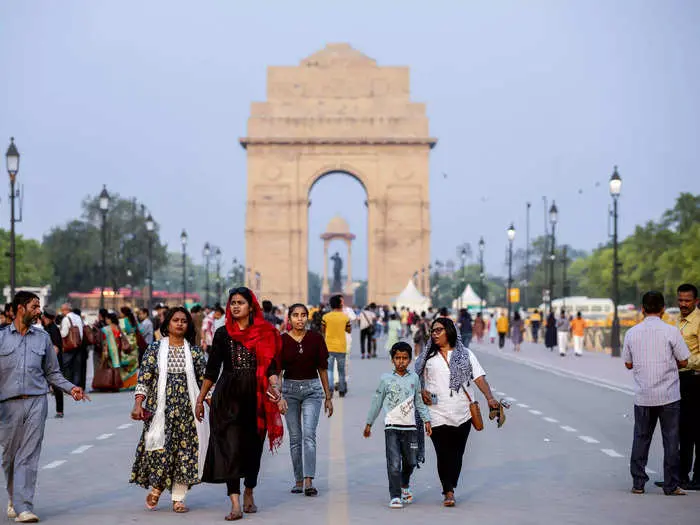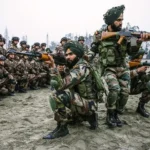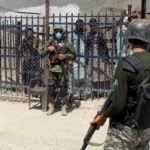India is anticipated to have the fastest-growing economy of the seven largest emerging-market and developing economies (EMDEs), according to the World Bank. In South Asia, the country generates three-fourths of the region’s output and experienced growth of 9.7% yearly in the first half of the fiscal year 2022–2023 as a result of strong private consumption and fixed investment growth. As a consequence of these significant shifts, India is starting to exert more influence within the global system, heralding both a once-in-a-generation transition and a competitive advantage. However, the Russian envoy to India recently asserted that normalizing relations between China and India is better for the world and that the region would fare worse with a weak Pakistan.
India: Confronting the Hesitations of History
The ruling BJP government in India has placed a lot of emphasis on “Amrit Kaal” in the lead-up to the general elections in 2024, claiming that this will be the time for the country’s greatest prosperity and social justice.
The phrase, which derives from Vedic astrology, outlines the country’s road map for the following 25 years as a knowledge-based, technologically advanced economy with robust public finances and a thriving financial sector. In addition, India aspires to take a leadership role in the international system so that it may influence outcomes rather than passively surrender to others’ policies. With China’s bold pursuit of its aspirations, the structural foundations of the world are fundamentally changing, and Russia and India are attempting to adjust accordingly.
Despite the lingering footprints of the Cold War, Russia has proceeded to bolster relations with China. For its part, India is no stranger to the “hesitations of history” in its ties with the US and the wider West. Regardless, India’s increasing influence in the international system means that its capacity to negotiate great power politics is considerably stronger today than it was in the past. It is still eager to engage in a dependable relationship with Russia even as it counters China’s growth and forges a strategic alliance with the US. Notably, India has refused to explicitly condemn the war in Ukraine, nor has it complied with Western sanctions against Moscow in spite of pressure from Western countries. Given its grandiose ambitions for a more assertive position in the global order, mention of India’s contentious, historically monopolistic dominance of South Asia is critical.
Taking the Hegemonic Route
Since the inception of its statehood in 1947, India has employed its might to sway its smaller neighbors.
It has not only exercised enormous unilateral political influence in these countries, but it has also nurtured imbalanced relationships with some of them for a number of years and continues to profit from multiple political and economic partnerships at their expense. Over the course of its 75-year history, it has militarily or otherwise interfered in Sri Lanka, the Maldives, Bangladesh, and Bhutan; occupied one of its neighbors—the formerly independent Kingdom of Sikkim; and clashed with all of its neighbors on various occasions.
Notwithstanding its geostrategic competition with China, the primary conflict in India’s neighborhood is its fierce rivalry with Pakistan over territorial claims to the former Princely State of Jammu and Kashmir. The unilateral revocation of Article 370 of the Indian Constitution, which had until 2019 granted Indian-occupied Kashmir special status, and its subsequent division into two union territories led to a further deterioration of relations with Pakistan, which has witnessed wars and armed clashes across the established Line of Control (LoC) since 1947.
Despite the existing stalemate, the regional feud occasionally penetrates the contours of great power politics. Speaking at a seminar on the 30th anniversary of the India-Russia friendship treaty, which was organized by India Writes Network and the Centre for Global India Insights, Russian Ambassador to India Denis Alipov stated that when considering its relations with Pakistan, particularly in terms of defense, Russia always keeps its relations with India into perspective. Although insisting that Russia would never act in a way that is harmful to India in its relations with Pakistan, Alipov noted that Russia sought to strengthen its economic ties with Pakistan despite the fact that Moscow and Islamabad only have a modest defense collaboration in terms of counterterrorism.
Proxies in the Neighborhood
The Russian envoy also claimed that a weak Pakistan would not be a preferable option for the region, for India, or for Afghanistan.
He added that it is not in the interests of anyone in the region for Pakistan to become destabilized. Conversely, no one—especially India—can benefit from a Pakistan that is strongly anti-India. Against this backdrop, it is worth mentioning that India’s external intelligence agency, the Research and Analysis Wing (RAW), has long been accused of meddling in the affairs of its neighbors. It was initially founded in 1968 to oppose China’s influence but has since shifted its focus to Pakistan. Numerous reports suggest that for more than 30 years, RAW and Pakistan’s Inter-Services Intelligence (ISI) have been engaged in covert operations against one another. Despite the fact that the longstanding Kashmir dispute continues to stoke these hostilities, Afghanistan has surfaced as a relatively new front in the power struggle. To this end, Pakistan claims that RAW operatives are attempting to destabilize Pakistan through India’s growing diplomatic endeavors in Afghanistan.
Since its founding, RAW has kept in close contact with KHAD—the premier security and intelligence agency of Afghanistan—owing to the information it has provided on Pakistan. This nexus was strengthened in the early 1980s when the foundation for trilateral cooperation between RAW, KHAD, and the Soviet KGB was established. India also rallied support for the Northern Alliance and actively supported the previous government in Kabul to further its own national security objectives. These included dismantling a major stronghold for non-state actors who were thought to be hostile to its interests.
Along the border between Afghanistan and the provinces of Khyber Pakhtunkhwa (KP) and Balochistan in Pakistan, RAW is accused of providing weapons and training to terrorist organizations like the Tehrik-i-Taliban Pakistan (TTP) and the Balochistan Liberation Army (BLA). In 2022, terrorist attacks in Pakistan soared, with the number of fatalities increasing from 850 in 2021 to 980 in 2022, representing an increase in violence of over 15%. KP witnessed the greatest surge, where fatalities increased by approximately 59%. Balochistan experienced a 1% increase in violence, but it also had the second-highest number of fatalities nationwide.
Thousands of militants and wanted terrorists, many of whom are connected to the outlawed TTP, are reportedly enjoying safe havens and the logistical support they need to carry out terrorist acts in Pakistan, according to Pakistani officials, some of whom have linked the concentration of violence in KP and Balochistan to the Taliban’s return to power in Afghanistan. If indeed India is funding these proxies in the neighborhood in pursuit of its goals, it must remember the cost at which the South Asian giant is taking its strides—squashing the weak under its weight.
Your go-to editorial hub for policy perspectives and informed analysis on pressing regional and global issues.


![Sherman from United States met with Pakistan's Foreign Minister Qureshi in Islamabad [Image by Pakistan Ministry of Foreign Affairs via AP].](https://southasiatimes.org/wp-content/uploads/2021/10/AP21281255820748-150x150.webp)


Add a Comment